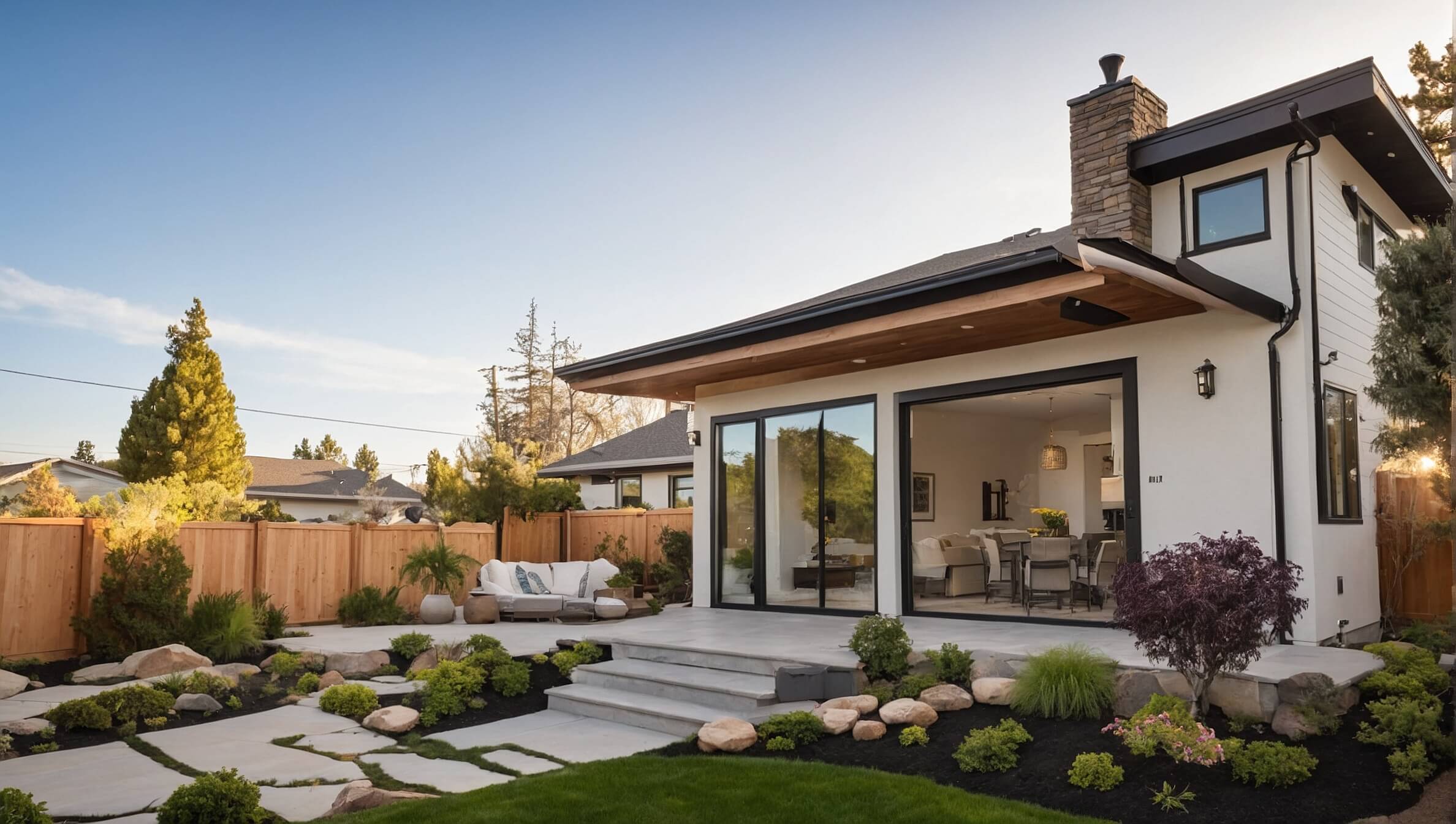In today’s dynamic economic landscape, Californian homeowners are increasingly seeking innovative avenues to fortify their income streams and alleviate financial burdens. One such avenue gaining momentum is the integration of accessory dwelling units (ADUs) into their properties. ADUs offer homeowners not only the prospect of rental income but also a spectrum of advantages, including enhanced financial stability and flexibility. At Home Debt Relief, we understand that every homeowner’s situation is unique, and we are committed to providing tailored options to help them navigate their financial challenges effectively. Through our personalized approach, we strive to find the best solutions that meet the specific needs and circumstances of each homeowner.
Augmenting Income through Rental Revenue: The incorporation of an ADU onto one’s property presents an opportunity to generate rental income. Renting out this additional living space enables homeowners to secure a steady cash flow, which can be instrumental in covering mortgage payments, property taxes, or other expenditures. This strategy serves as a prudent approach for individuals seeking to diversify their revenue streams or offset the escalating costs associated with homeownership.
Offering Affordable Housing Options: ADUs hold the promise of addressing the pressing need for affordable housing. Renting out an ADU at a reasonable rate can provide a cost-effective housing solution for tenants while simultaneously assisting homeowners in achieving their financial objectives. By contributing to the availability of affordable housing, homeowners play a constructive role in their communities and may even qualify for incentives or grants earmarked for affordable housing initiatives.
Facilitating Multigenerational Living and Expense Sharing: ADUs are ideally suited for accommodating multigenerational households, allowing multiple generations to reside under one roof while maintaining privacy and autonomy. This arrangement facilitates the pooling of resources, the sharing of expenses, and the collective management of household costs. ADUs offer homeowners the flexibility to adapt to evolving family dynamics while establishing a cost-efficient living arrangement for all occupants.
Fostering Home Office or Studio Space: Beyond rental income, an ADU can serve as a dedicated home office or creative studio. With an increasing number of individuals embracing remote work or pursuing entrepreneurial ventures, having a designated workspace in close proximity can enhance productivity and foster a healthier work-life balance. Moreover, homeowners may be eligible to deduct a portion of their ADU-related expenses when filing taxes, potentially reducing their overall tax liability.

Exploring Short-Term Rental Opportunities: Homeowners residing in sought-after tourist destinations or areas with high demand for short-term accommodations can leverage their ADUs for vacation rentals. Platforms like Airbnb or VRBO offer avenues to attract travelers and generate substantial income, particularly during peak seasons. However, it is imperative to review local regulations and secure any requisite permits or licenses before embarking on short-term rentals.
Enabling Expansion Potential for Aging in Place: For homeowners contemplating aging in place, an ADU represents a strategic investment. It affords the flexibility to downsize from the primary residence while retaining proximity to family and community. Homeowners can choose to occupy the ADU themselves and rent out the main house, thereby creating a supplementary income stream while enjoying the benefits of a more manageable living space.
Regulations and Permits for Building ADUs: Navigating regulations and permits is crucial when building ADUs. Here are key considerations:
Zoning and Land Use: Check local zoning regulations to determine if ADUs are allowed in your area.
Building Codes: Ensure compliance with local building codes for safety and structural integrity.
Permitting Process: Obtain necessary construction permits from the local building department.
Design and Size Restrictions: Adhere to regulations regarding ADU size, height, setbacks, and architectural design.
Junior Accessory Dwelling Unit (JADU): Additionally, homeowners can explore the option of a “Junior Accessory Dwelling Unit” (JADU). A JADU is a scaled-down version of an ADU, functioning as an independent, legally rentable unit that must be contained within the existing dwelling unit or an attached accessory structure, such as a garage. JADUs present intriguing construction possibilities that prove beneficial in various scenarios.
Common Challenges Homeowners Face when Building an ADU: Despite the benefits, homeowners may encounter challenges when building ADUs, including:
Financing: Securing financing for ADU construction can be challenging.
Space Limitations: Designing within existing space constraints can be challenging.
Construction Costs: ADU construction costs vary based on location, size, and materials.
Successful Utilization of ADUs for Short-Term Rentals: Maximize the potential of ADUs for short-term rentals through strategies such as:
Vacation Destinations: Convert ADUs into dedicated short-term rentals in popular vacation destinations.
Urban Areas: Rent out ADUs to business travelers or individuals seeking temporary accommodation in urban areas.
Cozy Retreats: Transform ADUs into charming retreats targeting travelers seeking unique experiences.
Conclusion: The construction of an ADU on one’s property presents a promising avenue for Californian homeowners to bolster their income, mitigate expenses, and attain financial stability. Whether through rental income, multigenerational living arrangements, home-based enterprises, or short-term rentals, ADUs offer a myriad of opportunities to leverage property assets effectively. At Home Debt Relief, we understand the diverse needs of homeowners and are dedicated to finding customized solutions to help them achieve their financial goals. Through our personalized approach and comprehensive support, we aim to empower homeowners to navigate their financial challenges with confidence and success.
General Advice and Support for Homeowners Facing Foreclosure
At House Debt Relief, we provide general advice and support for homeowners facing foreclosure, tailored to your unique financial situation. Our primary goal is to offer guidance that aligns with your best interests.
We recommend exploring assistance through non-profit, city, and state resources first. If these resources cannot provide the help you need, please reach out to us for further assistance or to request our advice at any time.
House Debt Relief is here to support you.











